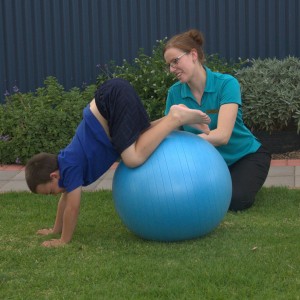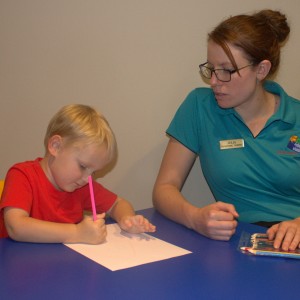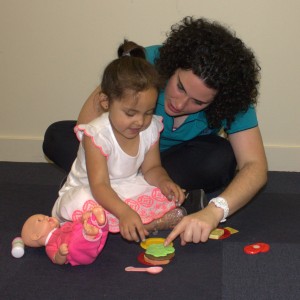 An occupational therapy assessment may be recommended if your child is having difficulties with their daily functioning, shows skills below the expected level for their age or is experiencing difficulties within their learning environment (childcare, kindergarten, school). You might be referred to occupational therapy by your child’s doctor, paediatrician, teacher, or you might notice some things yourself that you would like help with.
An occupational therapy assessment may be recommended if your child is having difficulties with their daily functioning, shows skills below the expected level for their age or is experiencing difficulties within their learning environment (childcare, kindergarten, school). You might be referred to occupational therapy by your child’s doctor, paediatrician, teacher, or you might notice some things yourself that you would like help with.
Occupational therapy assessment usually begins with gathering information from parents about their concerns as well as information about your child’s medical and developmental history. Information from your child’s learning environment is also useful and your child’s teacher may be asked to complete a questionnaire about your child’s abilities. Reports from any previous assessments that your child has had are also taken into account.
A number of activities are used to assess your child’s foundation and functional skills. This may involve use of formal tests or less formal play, or a combination of both depending on your child’s age and abilities. The occupational therapist takes into account information from the parent, as well as their own observations, to choose the most useful assessment activities for each child. Parents are welcome and encouraged to be in the room for the assessment in most cases.
 An occupational therapy assessment covers a range of skills areas. Occupational therapists are focused on maximising your child’s independent functioning, and developing the skills that your child needs in their everyday life.
An occupational therapy assessment covers a range of skills areas. Occupational therapists are focused on maximising your child’s independent functioning, and developing the skills that your child needs in their everyday life.
Assessment may therefore include the following skill areas:
- sensory processing and integration skills
- foundation skills such as body awareness, postural stability, reflex maturity and motor planning
- visual-perceptual skills
- fine motor skills including hand strength, crossing midline, bilateral integration, manipulation, grasp patterns
- gross motor skills including balance, aiming and catching, eye-hand coordination
- attention and concentration
- activities of daily living (ADLs) for example: toileting, feeding, dressing, grooming and sleeping
- play skills
- behaviour and social skills
- handwriting skills such as pencil grasp, pencil control and fluency, letter formation and handwriting speed and legibility
 This information allows the occupational therapist to pinpoint the child’s strengths and weaknesses. At the end of the assessment the results are discussed with the parents. The parents and other relevant people are then provided with a written summary of the assessment outcomes and activities and strategies to assist the child.
This information allows the occupational therapist to pinpoint the child’s strengths and weaknesses. At the end of the assessment the results are discussed with the parents. The parents and other relevant people are then provided with a written summary of the assessment outcomes and activities and strategies to assist the child.
A range of support options such as individual therapy and/or group programs may then be offered. At Talking Matters we can offer school based services for children who attend many of our local schools. This has the advantage of allowing the therapist to have regular contact with your child’s teacher and to offer practical suggestions for supporting your child in class. We also offer group programs that focus on specific skill areas such as handwriting, preparation for school and play skills. .
For more information about occupational therapy at Talking Matters browse our website at talkingmatters.com.au
Related Blog Posts
If you liked this post you may also like:
Communication skills for early schooling
Developing Self Care Skills
Memory and school
Is my child's speech lazy?



